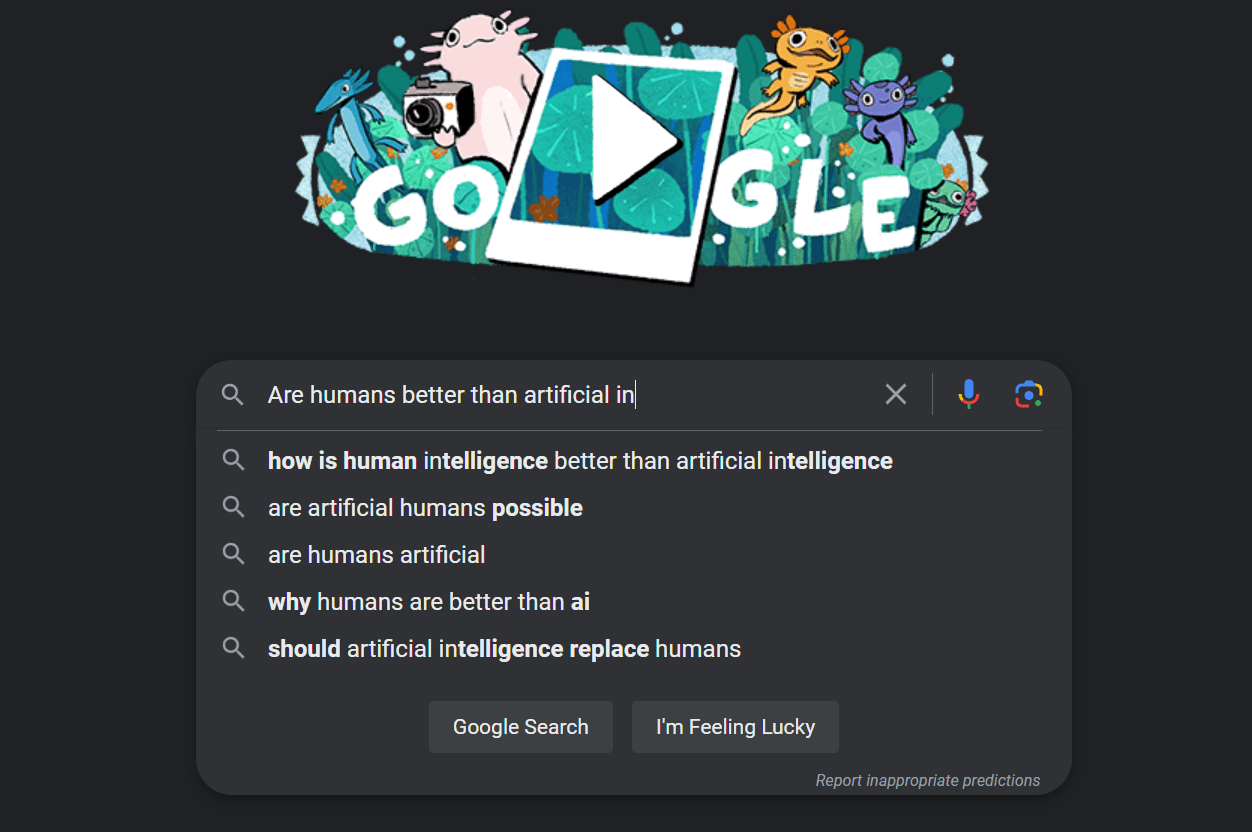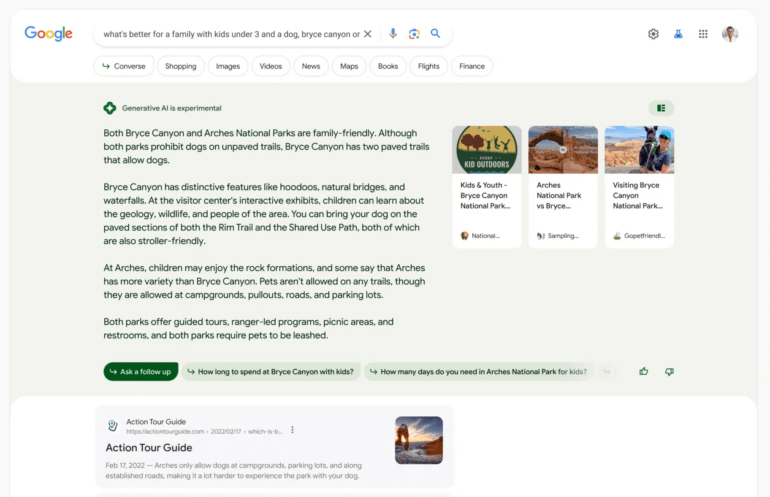Google's search chief says people don't want to "just hear" AI content

Pushed by OpenAI and Microsoft, Google is also laying the groundwork for a new AI-driven Internet. What role will human content play going forward?
If there is a tipping point where people's first call for information is to their chatbot instead of Google, then the content ecosystem on the web will change. Individual websites would become less important. Conversely, it would become more attractive for content providers to appear in the chatbot or AI content and potentially get paid or advertise there.
Google must destroy what it helped build
But if individual web pages no longer had any value, Google's business model, which is based on rating and listing individual web pages, would also be ruined.
In a way, Google helped build the Web as we know it, at least on a broad level because search engines like Google made the Web efficient to use in the first place. Of course, the company has built up a near-monopoly position in the West and regularly exploits its market power, for example in news aggregation or e-commerce. This is the downside of Google's dominance.
Prompted by the massive success of ChatGPT, Google now has to put this business model in jeopardy. The recently introduced AI Spotlights, AI-generated answers in Google search, take up the entire first screen.
Regular search results are being pushed down, and with the lower visibility, traffic and revenue for these sites are dropping. As value creation shifts to AI ecosystems, the traditional Internet as we know it today could lose value and quality.

People want other people - do they?
In an internal meeting, Elizabeth Reid, chief engineer of Google Search, talks about this very dilemma - Google is caught between old and new. Business Insider listened to an audio recording of the meeting and quotes from it.
Google's job is to understand what "great content" is and distribute it, Reid said. That could be AI content, but it doesn't have to be. AI content can be "spammy" but better than humans at sports or weather, for example.
In addition, Google has found that people value the perspectives of other people they can relate to, and the experiences they have had. As a result, Google is working hard to integrate human perspectives into its products and developing new technologies to do so. For example, social media posts appear in Google's "Perspectives" search.
For publishers and corporate PR, this could mean that the personality of individual authors will become even more relevant than it is today. Just as Google does today, chatbots may prefer to quote established personalities and formats. That is, if chatbots can learn to cite reliably and if copyright regulators ensure that citation and attribution are mandatory.
AI News Without the Hype – Curated by Humans
As a THE DECODER subscriber, you get ad-free reading, our weekly AI newsletter, the exclusive "AI Radar" Frontier Report 6× per year, access to comments, and our complete archive.
Subscribe nowAI news without the hype
Curated by humans.
- Over 20 percent launch discount.
- Read without distractions – no Google ads.
- Access to comments and community discussions.
- Weekly AI newsletter.
- 6 times a year: “AI Radar” – deep dives on key AI topics.
- Up to 25 % off on KI Pro online events.
- Access to our full ten-year archive.
- Get the latest AI news from The Decoder.